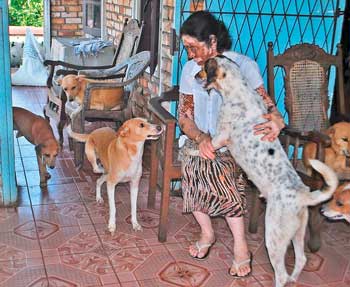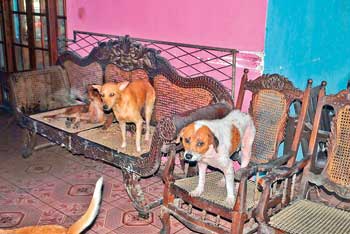Reply To:
Name - Reply Comment
 You will be reading this, I think, on the day after Christmas. The day after December 25th. Not unlike every other December 25ths we have run into, celebrated, and turned into a cosmetic festival that does little to no justice to its true, reflective Zeitgeist. There are Christmas stories that compel such a Zeitgeist, that offer us room for profound sorrow and intense anger. Stories that open us to the true meaning, if you could call it that, of those timeless words “Merry Christmas!”.
You will be reading this, I think, on the day after Christmas. The day after December 25th. Not unlike every other December 25ths we have run into, celebrated, and turned into a cosmetic festival that does little to no justice to its true, reflective Zeitgeist. There are Christmas stories that compel such a Zeitgeist, that offer us room for profound sorrow and intense anger. Stories that open us to the true meaning, if you could call it that, of those timeless words “Merry Christmas!”.
On this day, December 26, 2017, Boxing Day to some, an ordinary day to me, I will hence reflect on such a story which unfolded years ago near my home town, concerning a widow. That widow, Nandani Gallage, runs a small shelter, not for orphans, nor for adults, but for dogs.
There are those who believe that the term (and the idea behind the term) “humanist” must be limited to human beings. As such they celebrate every season – Christmas, the New Year, Vesak, Poson, and every other day affiliated to a faith and collective – reflecting on the poor who continue to suffer in destitution and pitifully wallow in want. To me such a construction of an open-ended word is, at best, misconceived and born out of our mistaken beliefs regarding who the recipients of charity and goodwill should be. The world isn’t resident to just human beings, after all, in fact we aren’t even heirs to that world: no one owes a damn to us, but we owe more than a damn to every creature that breathes, every flower that blooms, every forest that’s razed to the ground in the name of development. To me, therefore, Nandani is a humanist.
It wasn’t just dogs, moreover: even unwanted cats and kittens found their way, somehow, to her overcrowded shelter
 I first came across her in 2014, I remember, through an article written to one of those weekly supplements in a Sinhala newspaper (though which newspaper, I can’t recall now). It seemed at the time that she had a story to tell, so I went there, to Wewala, near Bokundara, which borders Piliyandala, to ascertain for myself what she had done and was doing. The last time I talked with her, she told me she couldn’t remember a time when she wasn’t handling and taking care of a street pooch, because the years that preceded her deterioration to the pitiful state she is in now almost seemed to be from another world, happier than the world she is in now. And as is always typical of such individuals, news of the good she did (rearing and nurturing the unwanted dog) got around fast, and soon one thoughtless person after another started dumping their unwanted dogs and puppies by her house. It wasn’t just dogs, moreover: even unwanted cats and kittens found their way, somehow, to her overcrowded shelter.
I first came across her in 2014, I remember, through an article written to one of those weekly supplements in a Sinhala newspaper (though which newspaper, I can’t recall now). It seemed at the time that she had a story to tell, so I went there, to Wewala, near Bokundara, which borders Piliyandala, to ascertain for myself what she had done and was doing. The last time I talked with her, she told me she couldn’t remember a time when she wasn’t handling and taking care of a street pooch, because the years that preceded her deterioration to the pitiful state she is in now almost seemed to be from another world, happier than the world she is in now. And as is always typical of such individuals, news of the good she did (rearing and nurturing the unwanted dog) got around fast, and soon one thoughtless person after another started dumping their unwanted dogs and puppies by her house. It wasn’t just dogs, moreover: even unwanted cats and kittens found their way, somehow, to her overcrowded shelter.
Problems tend to multiply in more ways than one and for Nandani, the problems she faced multiplied literally when the dogs she took in started bearing puppies: she couldn’t simply give them away, so she decided to look after them as well. Her house isn’t in the best condition today, not surprisingly, since the dogs she rears are everywhere, whether in the bedroom or the kitchen, and they haven’t left a single chair or sofa alone. Things would have been better if Nandani’s husband were alive, but he died four years ago, which left her as destitute and unwanted as her pooches. She had thought of funding her shelter but finding those funds proved to be difficult: initially, she had borrowed from her neighbours, sometimes up to 4,000 rupees (which can do wonders for dogs), but after a while she had given up, despising the idea of individual charity. That makes her stand out, moreover: her disregard for charity. It’s the prerogative and the preserve of the privileged, after all, a rare phenomenon.
Her husband’s death had been preceded by another unfortunate incident. By her estimation a generous man, he had once lent two million rupees to a colleague of his, who had used the money to go to Naples. The colleague hadn’t returned the money, even when Nandani’s husband was gravely ill and after his death, so when Nandani pleaded with him and got him to send her about 7,000 rupees a month, she had been happy for a while. But only for a while: to this day, he hasn’t sent as much as a cent or rupee to her, and has broken off all communication with her. Tells a lot about us humanists, and tells a lot about her. (I suggested twice that she resort to one of those numerous NGOs and Animal Shelters that have been set up in recent years but she refused. Her rationale, sentimental to some, understandable to me, is that she’s grown so much on those pooches of hers that she can’t stand the idea of sending them away.)
So on this Christmas, let us take some time to reflect on some people. First and foremost Jesus Christ, and then people like Nandani
She had also sought help from outside institutions, from shops, but to no avail. “I used to buy rice-crumbs from a nearby shop that sold them for 30 rupees a kilo. I asked them as to why or how they cost so much when a kilo of normal rice cost around 70, but their argument was that those crumbs would sell in the market for 40 a kilo!” The “rice-crumbs” she’d been given all this while is what you’d have expected: a flea-and-dirt infested mess that shopkeepers sweep to a corner and collect every day.
Which brings me to another pertinent point. It’s clear that Nandani badly needs food for the dogs, and money for that food, but some would suggest that she shouldn’t just take on dogs that are dumped at her doorstep. After all, one of the most common reasons for the stray dog problem in Sri Lanka is that people keep dumping them in public places. People like Nandani have good intentions, and they aren’t hard to come by, but all too often they’re preyed on by those who want a quick fix for their unwanted pooches. It’s a crazy, interminable paradox, a circle that never stops going around and around. Sterilisation would be a tentative solution, but even that has its limits despite the government’s own efforts at resorting to it to alleviate our stray dog problem. Charity is also a stopgap solution, which means that the only answer to her predicament would be a set or, more specifically, a network of genuine patrons.
As I said before, we aren’t really the heirs to this world. People like Nandani give us room for hope, but hope that is later tempered down
 The unwanted pooch problem in Sri Lanka is more or less a microcosm of the elephant and human conflict we see elsewhere: there are problems, logistical or otherwise, involved in both sides. In the case of that unwanted pooch it’s largely man made: we rear pretty pets but the minute we decide their offspring are a burden we put them in a cardboard box and deposit them by the road. In this respect, religious institutions have been helpful – particularly churches and temples, many of which have made those pooches their residents – but then the other side, i.e. the humans, needs to be revisited as well: rabies is a rabid problem, even with the measures taken by successive governments, and other issues relating to hygiene are pertinent too.
The unwanted pooch problem in Sri Lanka is more or less a microcosm of the elephant and human conflict we see elsewhere: there are problems, logistical or otherwise, involved in both sides. In the case of that unwanted pooch it’s largely man made: we rear pretty pets but the minute we decide their offspring are a burden we put them in a cardboard box and deposit them by the road. In this respect, religious institutions have been helpful – particularly churches and temples, many of which have made those pooches their residents – but then the other side, i.e. the humans, needs to be revisited as well: rabies is a rabid problem, even with the measures taken by successive governments, and other issues relating to hygiene are pertinent too.
Malinda Seneviratne, quoting Ranbanda Seneviratne (no relative), contended that compared to those days when even the death of a dog would bring 50 human beings to the street, now if 50 human beings would die not even a single dog would be bothered. I understand that sentiment but I personally think that both Seneviratnes were wrong: if 50 human beings died a dog WOULD be bothered, because contemporary society has drawn a rift between the animal and the human that leaves the latter as the true savage. As I said before, we aren’t really the heirs to this world. People like Nandani give us room for hope, but hope that is later tempered down. She has survived on charity, but this intriguing lady who fends for herself virtually alone and these dogs needs more. Words aren’t enough to explain what she does: it’s a marvel, at one level, for a woman of her position to sacrifice so much for some unwanted dogs. She refuses to call her house a “dog shelter” – she prefers not to label what she’s doing – but if it were a shelter, it certainly is overcrowded today. And she’s still not grumbling.
So on this Christmas, as with every other Christmas, let us take some time to reflect on some people. First and foremost Jesus Christ, and then people like Nandani.
You can contact Nandani through the following number: 0768725151